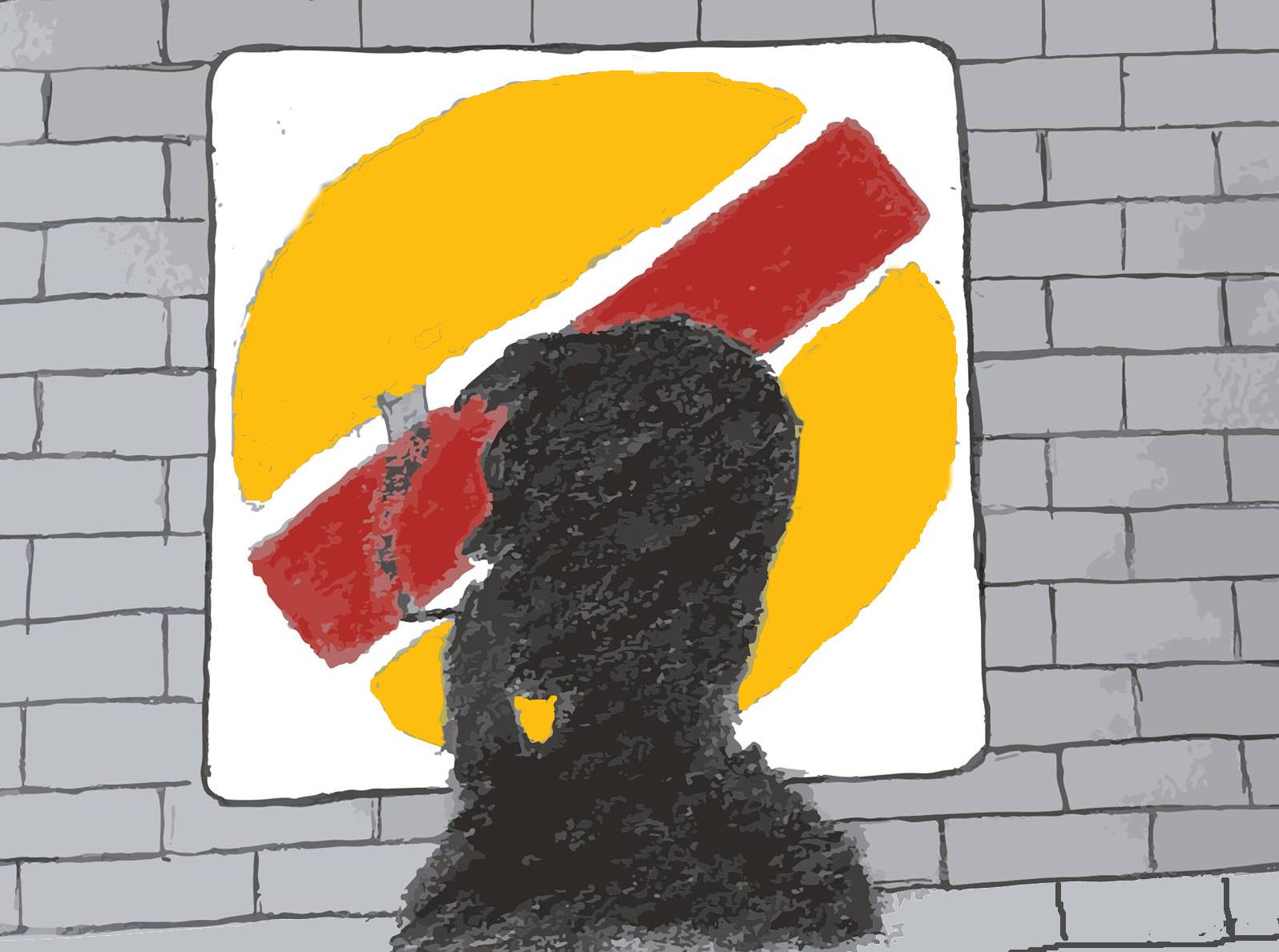
Warren Flanagan has had a bad night.
Warren Flanagan has missed the last train to Skokie and was just yelled at by the graveyard shift manager of Burger King to wake up and get the hell out of his restaurant. Now he’s outside of that Burger King, and he’s smoking a cigarette. This provides the natural impetus to strike up a conversation.
“What do you do?” He tells me he’s a drummer, a drummer since two, and that’s a long time to be a drummer because he’s 59 now. He’d play it all, too. Jazz, pop, rock, even country and western. He asks me if I can imagine the faces in a room full of white people hearing a Black drummer play country music, and I tell him that I can’t. “Why do you like playing it?” He tells me he likes the beat.
Warren Flanagan is enthused by my current line of questioning. All this talk reminds him of the time he owned six pit bulls, as well as his habit of renaming other people’s dogs. He named one Al Pacino, but only because the dog deserved it. We agree that Al Pacino must have been some motherfucker.
Boy, does Warren Flanagan have stories. He tells me that one time he heard some cool sounds coming from a bar, so he looked for an entrance and found a band. “Mind if I check you cats out?” Turns out, this is how the Undone Trumpets finally found a drummer.
He wants to tell me more, but I didn’t have all night, and that’s something I’m still kicking myself for. But I ask for his phone number anyway, shake his hand and go back home, looking to get to bed before the sun rises.
About a week later, I call him up at three in the morning because he seems like the type of guy who’d also be up at three in the morning. I want to see what he’s up to. I’ll tell him to give me an address, and I’ll be there. He picks up the phone, but his voice makes it sound like I’ve caught him at a bad time. Turns out I didn’t – he just doesn’t sound the same over the phone.
We meet on the corner of Dempster and Chicago. By now it’s approaching four, so I need a coffee and he wants one too. We walk into a 7-11, and I ask the cashier what’s the largest coffee we can get for what’s left in my bank account. We walk back out with one-and-a-half large coffees and a pack of Marlboro Reds because we can’t stand menthols. We start to light up when the cashier comes out and tells us we can’t smoke by the door, even if it is four in the morning. Warren Flanagan says they sure picked a shitty place for an ashtray.
Then Warren Flanagan tells me something surprising. It turns out that Warren Flanagan is wanted by the law, for reasons not entirely clear to either one of us.
Warren Flanagan was born in Chicago on the West Side. It so happens that the West Side has some of the biggest drug problems in the United States of America. I tell him that I remember talking to one man over the summer, Chris I think, who told me that dirty cops sometimes plant drugs on people they want to see behind bars. He tells me that’s probably the closest thing these guys have had to a wet dream in 20 years of service. He thinks a similar operation is targeting him.
We’re almost finished smoking when a woman walks up. Her name is Genie, and she has every reason to believe that she is Warren Flanagan’s wife. She asks for a cigarette, but wants one rolled. It’s a way to save money, she says. She’s right, and fortunately I have a waning packet of loose tobacco and a few papers left, but no filters. That’s ok – that’s the way Genie prefers it. I roll her a cigarette and flick a few shards of tobacco on the ground. Warren Flanagan tells me he’d never think of being that wasteful, and I’ve never felt so guilty in my life.
“What do you study?” Now it’s his turn to ask me questions. I tell him that I study English, English literature to be exact, but that I’m more interested in writing for myself than for other people’s writing. I tell him that my concentration in school is poetry, and a smile creeps into his face. He points to Genie, who recently received a poem written on a napkin from a suitor, and still had the nerve to throw it away. Warren Flanagan recalls reading an article in a magazine about someone convincing an art curator to buy a potato for a few thousand dollars, which offers Warren Flanagan a pretty concrete impression of the modern art market. In the transition between night and morning, we have all the reason in the world to believe that publishing the poem could’ve made them rich.
He tells me, quickly, that he’s going to Arizona tomorrow. I ask him for how long, but this is one of those fuzzy questions – a line of questioning, for which Warren Flanagan has neither enthusiasm nor time. He’s going to stay with one of his old Marine buddies. Hang out, maybe play some music, but mostly just lay low.
He catches a train back home, and I walk back to my apartment. I try going to bed, but the sun is keeping me up. It’s pretty wild that most of this actually happened. I remember thinking: I have his number. But people like Warren Flanagan just don’t come across the same over the phone.